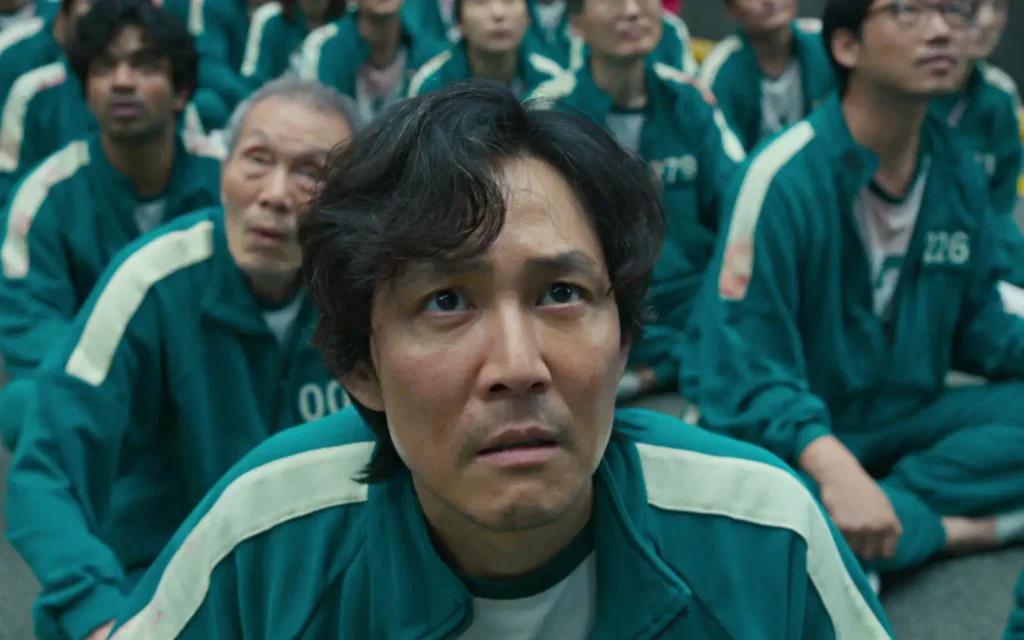Netflix’s Squid Game took the world by storm with its brutal depiction of desperate contestants risking their lives in deadly children’s games for a chance to escape crushing debt. But as viewers binge-watched the dystopian thriller, one question kept surfacing: Is Squid Game based on a true story? While the show itself is fictional, its roots are deeply entangled with real-world struggles, economic inequality, and even historical events. Let’s dive into the chilling inspirations behind this global phenomenon.

The Fiction vs. Reality of Squid Game
At its core, Squid Game is a work of fiction. There’s no verified record of a secret, high-stakes game where 456 players compete to the death for billions of won. However, creator Hwang Dong-hyuk drew heavily from real-life societal issues, personal experiences, and cultural touchstones to craft the series’ unsettling authenticity.
1. Economic Desperation: A Global Reality
The show’s premise hinges on characters drowning in debt—a plight relatable to millions worldwide. South Korea, where the series is set, has one of the highest household debt rates in the world. Skyrocketing living costs, predatory loans, and unemployment mirror the struggles of characters like Gi-hun, Seong, and Sang-woo.
- Real-Life Parallels: The 2009 SsangYong Motors strike, where laid-off workers clashed violently with police, inspired Hwang. Many participants faced financial ruin, echoing the desperation of Squid Game’s contestants.
- Global Relevance: From student loans to medical debt, the show’s critique of capitalism resonates far beyond South Korea.
2. Deadly Games Rooted in Childhood Nostalgia
The games themselves—Red Light, Green Light, Dalgona candy carving, and the titular Squid Game—are nostalgic Korean children’s activities. Hwang reimagined them as lethal challenges to juxtapose innocence with brutality. While the deadly twists are fictional, the games reflect a cultural truth: childhood memories often hide darker societal pressures.
3. The Creator’s Personal Struggles
Hwang Dong-hyuk’s own financial hardships shaped the series. He wrote the script in 2008 during the global financial crisis, a time when he couldn’t afford heat and relied on free coffee from a film studio. His frustration with economic inequality and the “survival of the fittest” mentality seeped into the show’s DNA.
4. Real-Life “Squid Games”?
While no organized death games exist, the series mirrors extreme examples of exploitation for profit. Think:
- Illegal underground gambling rings
- Dangerous reality TV stunts (though not lethal)
- Human trafficking and forced labor
The VIPs, who bet on contestants like horses, symbolize the ultra-wealthy’s detachment from human suffering—a theme amplified by real-world wealth gaps.
Why Do People Think It’s Real?
The show’s visceral realism makes it easy to believe. Stories of debt-driven despair, ruthless competition, and systemic inequality are universal. Social media rumors and clickbait headlines have also fueled speculation, but Squid Game remains a fictional allegory—not a documentary.
Truth in Fiction
Squid Game isn’t based on a true story, but its power lies in how closely it mirrors real-life struggles. By amplifying societal fears—debt, exploitation, and the dehumanizing effects of greed—the series holds up a distorted mirror to our world. As Hwang said, “It’s a story about losers… and the cruelty of the system they’re trapped in.”
Whether you’re team Gi-hun or still recovering from Red Light, Green Light, one thing is clear: the true horror of Squid Game isn’t the games themselves—it’s the reality they reflect.
